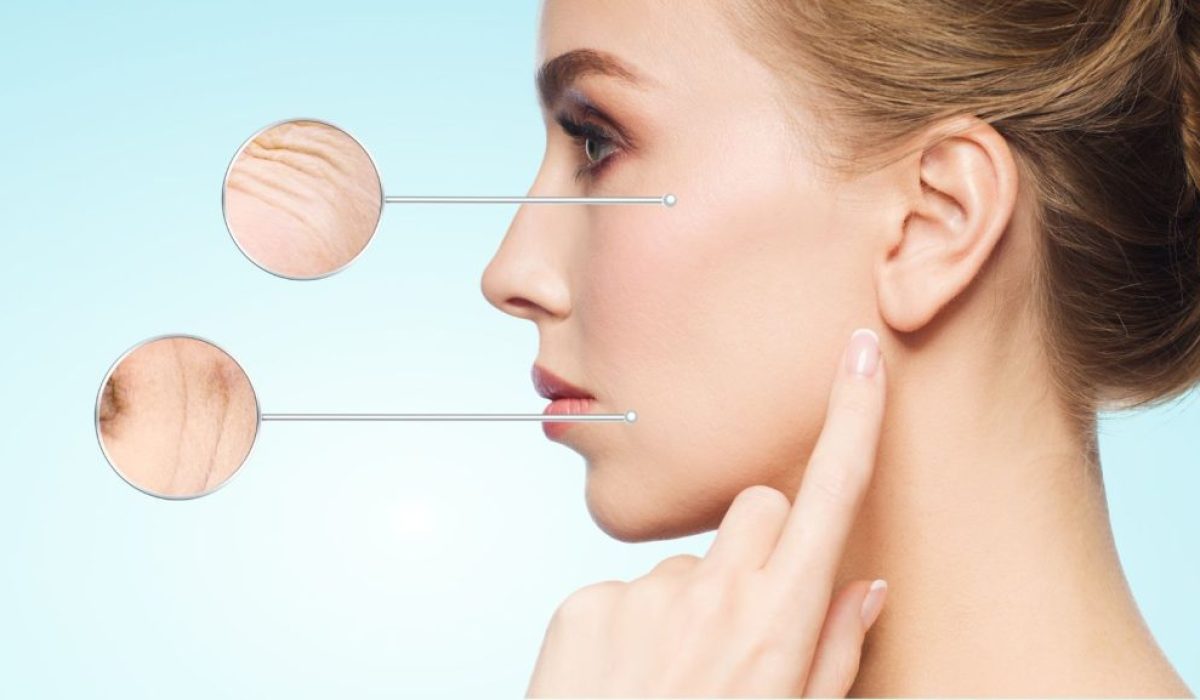10 ways to boost your collagen and look younger
Unveiling the Secrets of Collagen Boosting for Timeless Beauty
Collagen is a protein that plays a crucial role in maintaining the firmness and elasticity of the skin. As we age, collagen production naturally decreases, leading to wrinkles and sagging skin. While there’s no way to completely stop the aging process, you can take steps to boost collagen production and promote younger-looking skin. Here are 20 ways to do so:
Sleep Your Way to Radiant Skin
Quality sleep plays a vital role in overall health, and it contributes to various physiological processes, including those related to skin health and collagen production. While sleep itself may not directly “boost” collagen, it supports the body’s natural regenerative processes that are essential for maintaining healthy skin, including collagen synthesis. Here’s how sleep influences collagen and contributes to skin health:

Cellular Repair and Regeneration:
During deep sleep, the body undergoes a process of cellular repair and regeneration. This includes the skin cells. Collagen is a structural protein, and adequate sleep provides the body with the time and energy it needs to repair and rebuild collagen fibers.
Hormonal Balance:
Sleep helps regulate the release of various hormones, including growth hormone. Growth hormone is essential for collagen synthesis, and its secretion is often higher during deep sleep. This hormonal balance supports the body’s ability to produce and maintain collagen.
Reduced Cortisol Levels:
Cortisol, often referred to as the stress hormone, is known to accelerate the breakdown of collagen. Quality sleep helps regulate cortisol levels, preventing excessive cortisol production that may contribute to collagen degradation.
Increased Blood Flow:
Adequate sleep improves blood circulation, ensuring that essential nutrients and oxygen are delivered to the skin cells. Improved blood flow supports overall skin health and collagen synthesis.
Collagen-Boosting Peptides Release:
During deep sleep, the body may release collagen-boosting peptides. These peptides can stimulate collagen production and contribute to the skin’s repair and renewal processes.
Reduced Inflammation:
Chronic inflammation can lead to collagen breakdown and premature aging. Quality sleep helps regulate inflammatory processes, contributing to a healthier environment for collagen maintenance.
Skin Hydration:
Sleep supports the body’s ability to regulate water balance. Well-hydrated skin is more elastic and supple, and proper hydration is essential for the optimal function of collagen.
To maximize the benefits of sleep for collagen and overall skin health, it’s recommended to aim for 7-9 hours of quality sleep per night. Establishing a consistent sleep routine, creating a comfortable sleep environment, and managing stress can contribute to improved sleep quality.
Benefits of Collagen Supplements for Enhanced Skin Elasticity
In the quest for achieving radiant and youthful skin, the beauty industry has witnessed a surge in collagen supplements. These supplements, available in various forms such as pills, powders, or liquid, promise to support collagen production and enhance skin elasticity. In this blog post, we’ll explore the potential benefits of collagen supplements, the science behind them, and how they might contribute to your journey to healthier, more youthful-looking skin.
Understanding Collagen and Its Role: Collagen is a vital protein that provides structure, firmness, and elasticity to the skin. As we age, our natural collagen production tends to decline, leading to the development of wrinkles, fine lines, and sagging skin. Collagen supplements aim to address this by providing the body with the essential building blocks needed for collagen synthesis.

The Science Behind Collagen Supplements:
Research suggests that collagen supplements may help stimulate collagen production in the skin. The peptides in these supplements are believed to be absorbed into the bloodstream, reaching the skin and promoting collagen synthesis. While the science is evolving, early studies show promising results in terms of improved skin elasticity and hydration.
Tips for Choosing Collagen Supplements:
- Look for Type I and III Collagen: These types are the main components of skin, providing structure and elasticity.
- Check for Bioavailability: Opt for supplements with high bioavailability to ensure better absorption and effectiveness.
- Consider Additional Ingredients: Some supplements include complementary ingredients like vitamins, minerals, or hyaluronic acid, which may enhance their benefits for skin health.
- Consult with a Professional: Before incorporating collagen supplements into your routine, it’s advisable to consult with a healthcare professional or dermatologist, especially if you have existing health conditions or concerns.
Collagen supplements offer a promising avenue for those seeking to rejuvenate their skin and promote a more youthful appearance. By understanding the types of supplements available, the science behind their potential benefits, and essential considerations when choosing them, you can make informed decisions to support your journey toward radiant and healthy skin. Remember, while supplements can be a valuable addition, a holistic approach to skincare, including a healthy diet and lifestyle, remains crucial for achieving optimal results.
Nourish Your Skin: The Power of an Antioxidant-Rich Diet for Collagen Synthesis
In the pursuit of maintaining youthful and vibrant skin, one of the key contributors lies in the very essence of what we consume daily – our diet. An antioxidant-rich diet, packed with foods high in essential nutrients such as vitamin C, amino acids, and copper, plays a pivotal role in supporting collagen synthesis and promoting overall skin health.

- Vitamin C, hailed as a potent antioxidant, is a crucial component in collagen formation. Found abundantly in citrus fruits, strawberries, bell peppers, and leafy greens, vitamin C not only scavenges free radicals that can damage collagen but also actively participates in the enzymatic processes required for collagen synthesis.
- Amino acids, often referred to as the building blocks of proteins, are integral to collagen’s structural integrity. Foods rich in amino acids, such as lean proteins like chicken, fish, eggs, and plant-based sources like legumes and quinoa, provide the necessary raw materials for the body to construct collagen strands, thereby enhancing skin elasticity and firmness.
- Copper, a trace mineral found in various foods including nuts, seeds, shellfish, and whole grains, plays a unique role in collagen synthesis. It acts as a cofactor for enzymes involved in the cross-linking of collagen fibers, contributing to the strength and stability of the collagen matrix in the skin.
Embracing an antioxidant-rich diet is not just about maintaining skin’s youthful appearance; it’s a holistic approach to overall well-being. By incorporating these nutrient-dense foods into our daily meals, we not only provide our skin with the essential tools for collagen synthesis but also fortify the body against oxidative stress, contributing to a radiant and resilient complexion. So, let your plate be a canvas of vibrant, colorful, and collagen-boosting ingredients, nourishing your skin from the inside out.

